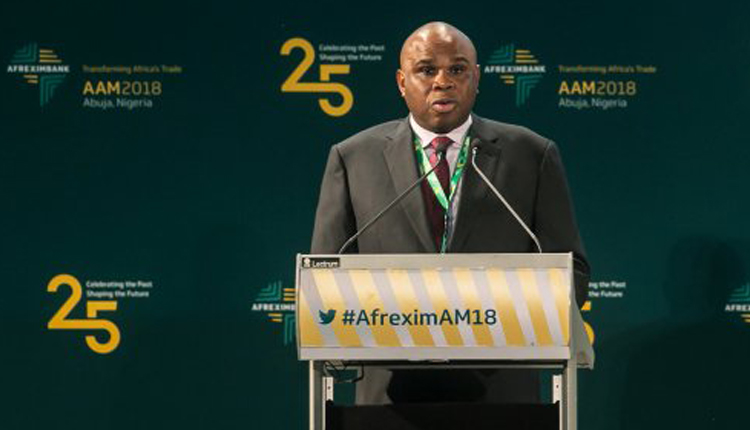Afreximbank earmarks $1 billion to support Africa historic free trade deal
The African Export-Import Bank (Afreximbank) said on Monday it will institute a $1 billion adjustment facility to cushion the effects of the newly-launched continental free trade zone.
The facility will enable countries adjust in an orderly manner to sudden significant tariff revenue losses as a result of the implementation of the African Continental Free Trade Area (AfCFTA), which entered its operational phase on Sunday.
“This facility will help countries to accelerate the ratification of the AfCFTA,” Afreximbank’s president Benedict Oramah said, telling the heads of state at the African Union’s summit in Niamey, Niger.
Oramah added that, as part of its support for the implementation of the AfCFTA, Afreximbank had provided support to aid the work being done by the African Regional Standards Organisation and the AU in implementing the Agreement.
In addition to the facility, Oramah also announced a series of initiatives to ensure the implementation of the AfCFTA.
He unveiled the launch of the Pan-African Payment and Settlement System (PAPSS), the first continent-wide payment digital system focused on facilitating payments for goods and services in intra-African trade in African currencies. The bank has developed the PAPSS in collaboration with the African Union.
“It (PAPSS) is a platform that will domesticate, intra-regional payments, save the continent more than $5 billion in payment transaction costs per annum,” Oramah added.
According to Oramah, the new platform will also “formalise a significant proportion of the estimated $50 billion of informal intra-African trade, and above all, contribute in boosting intra-African trade.”
Afreximbank aims to make it possible for Africans to pay for intra-regional trade in their local currencies, he added. That’s why “the digital platform will deal a fatal blow to the underdevelopment of Africa caused by defragmentation of its economies. Our goal is to reduce, significantly, the foreign currency content of intra-African trade payments.”
Oramah argued that, in the “renewed focus on industrial and value-chain development across the continent in trying to boost trade and investment, it is imperative that we address the economic costs of effecting so many payments in scarce foreign exchange.”
“Making cross-border payments easier, cheaper and safer is an obvious critical step in creating an Africa we want,” Afreximbank’s president concluded.
Egyptian President Abdel Fattah al-Sisi, who currently chairs the AU, launched on Sunday the operational phase of the AfCFTA at the AU’s summit. The free trade, if successful, would unite 1.3 billion people, create a $3.4 trillion economic bloc.
AfCFTA, the largest since the creation of the World Trade Organization in 1994, is expected to help unlock Africa’s long-stymied economic potential by boosting intra-regional trade, strengthening supply chains and spreading expertise.
So far, Fifty-four of the continent’s 55 states have signed up. 27 states have ratified the continental free trade zone, which is set to be a potential “economic game changer” according to the International Monetary Fund.
The free trade agreement was adopted and opened for signature on 21 March 2018 in Kigali. It later entered into force on 30 May 2019, thirty days after having received the twenty-second instrument of ratification on 29 April, 2019 in conformity with legal provisions.


